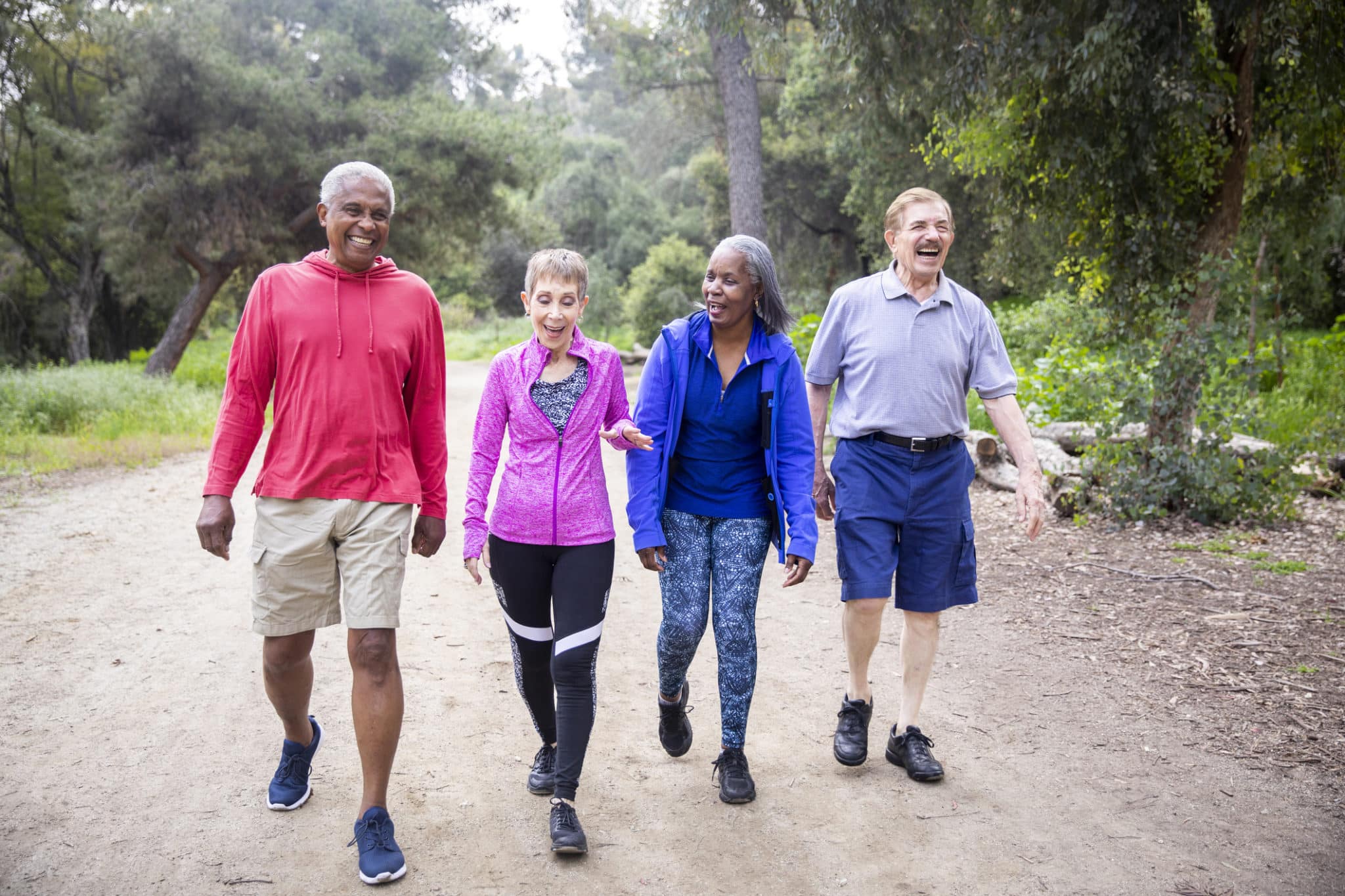How to Help Prevent Age-Related Muscle Loss

Maintaining muscle is one of the most important things you can do for your overall health as you age. Similar to bone density loss, muscle loss is often a natural part of aging, and can have a detrimental effect on posture, energy levels, mobility, and balance, to name a few.
The medical term for age-related muscle loss is sarcopenia. Before middle age, bodies usually regulate the signals for muscle growth and muscle teardown, keeping them in equal balance. But as we age, our bodies become more resistant to the growth signals, making it easier and more common for muscle loss to occur. While for most people muscle loss begins around the age of 50, certain things can exacerbate its speed:
- A sedentary lifestyle. When you don’t use your muscles they atrophy more quickly, leaving you feeling weakened and more fatigued. This can trap you in a cycle of decreased activity, because feeling tired and weak makes it difficult to get up and get active.
- Not getting enough daily protein or calories. Muscles require protein to function and to grow, but many people don’t consume enough protein every day to keep their muscles strong and healthy.
- Chronic injuries. Injuries are extremely common; nearly all of us have experienced at least one major injury making a lasting impact on our physical health and mobility. For some, it’s a recurring knee injury or chronic back pain negatively affecting our daily lives and interfering with our ability to exercise. When pain from an injury leaves you unable to move how you would normally move, your muscles may begin to deteriorate more rapidly, especially after middle age.
3 steps you can take to help prevent age-related muscle loss:
- Diet is key. Many younger people don’t spend much time thinking about their diet, but as you age, nutrition becomes crucial to your health. Ensure you’re consuming enough grams of protein daily, and for added health benefits, you can also enjoy calcium-rich foods like yogurt. If you’re unsure about what a healthy diet looks like for someone your age, consult with a nutritionist who can help you feel your best.
- Go on regular walks. It seems so simple, yet walking is one of the best ways to keep your muscles strong as you age, and it also has great cardiovascular benefits. Whether you prefer to walk alone or with a group of friends, try and make a daily walk part of your routine – your muscles will thank you.
- Do weight-resistance training. This doesn’t mean going to the gym and lifting hundreds of pounds. Rather, start with two to four pound dumbbells and build up your stamina three to four times a week. Most gyms have personal trainers who can help you establish a training routine. YouTube offers free workout plans for people of all levels and abilities.
Combating muscle loss in assisted living
For assisted living residents who want to combat age-related muscle loss, working with an in-house physical therapist is a wonderful way to regain your strength and improve your physical health. Physical therapists can also ensure you aren’t aggravating any existing injuries and recommend alternative activities if traditional exercise isn’t available.
For more information about our assisted living center in Gloucester County, please contact our team today. We look forward to hearing from you.




